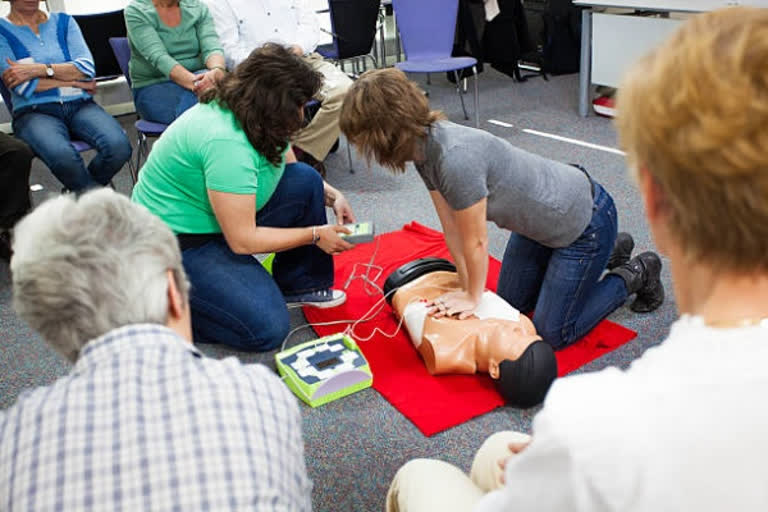New Delhi: Women with Cardiovascular Disease (CVD) have poorer results and are less likely to participate in preventative and rehabilitation programmes than males worldwide. The International Council of Cardiovascular Prevention and Rehabilitation (ICCPR) convened a panel of experts who developed a clinical practice guideline that was endorsed by 24 clinical societies worldwide to provide guidance to the cardiac rehabilitation community on how to deliver more effective women-focused programming.
The findings of the study were published in the Canadian Journal of Cardiology. "Accordingly, 'women-focused' models of CR have been developed to better engage women and optimize their outcomes. There is now sufficient evidence on women-focused CR to make recommendations to the CR community." This ICCPR clinical practice guideline provides guidance to the CR community on how best to design programs for women with CVD, including stroke and Peripheral Arterial Disease (PAD), and how to increase their engagement, with the goal of optimizing women's outcomes (i.e., death, hospitalization, function, psychosocial wellbeing, and quality of life). Cost, resource implications, feasibility, and patient preferences are foremost considerations in the recommendations.
The ICCPR identified women-focused CR researchers through a review of the scientific literature and programs offering women-focused CR around the world as identified through ICCPR's Global Audit. Individuals and programs that consented to participate formed a writing and consensus panel including experts with diverse geographic representation who are multidisciplinary healthcare providers, a policymaker, and patient partners. This group drafted and reviewed the recommendations. The draft then underwent external review from CR societies internationally and was posted online for public comment before finalization. One third of the studies identified in the review that formed the basis for the guideline came from Canada, which is considered to be a leader in women-focused CR.
The guideline presents 15 recommendations relating to referral (i.e., automatic plus encouragement), setting (e.g., choice of delivery mode, environment, tailoring, and staff training), and delivery (e.g., session timing options, preferred form of exercise, psychosocial assessment and care, and education on women and heart disease). When adopted, these recommendations and the associated tools compiled can feasibly support some degree of women-focused CR as part of any program.
Key recommendations are: Women should be systematically referred to CR to reduce bias and encouraged to attend before hospital discharge through two-way fulsome discussion to overcome gender-related barriers. Particular considerations when developing a woman's tailored rehab plan include considering their contextual and full clinical history, such as any mental health and psychosocial issues, menopausal status, frailty, cancer history, and concerns about urinary incontinence, falls risk/osteoporosis, as well as autoimmune conditions.
